In Part One, we discussed the importance of the last few weeks of pregnancy in preparing for the postpartum phase. In Part 2, we talk about those crucial first few weeks after baby is born. Think of this as the second phase of nesting. After the flurry of preparing for baby’s arrival, sink deep into the nest you’ve built. Rest as much as possible, focus on bonding and breastfeeding with baby, and allow time for physical healing.
Deep Rest
After giving birth, plan to spend most of your day in bed or on the couch for the better part of two weeks. This beautiful window is a fleeting time to bond with your new baby–simply watch, be present and get to know his or her signals. You will downshift into the slow, unfolding world of your newborn. Newborns give us an amazing gift–they have no conscious agenda of judgement about their experience–rather they live in an entirely sensory world. This offers a lovely example of pure moment-to-moment living–a timely lesson as the mother in you is born alongside your baby. Personally, I also found it so humanizing, to witness the pure state that very few of us remember, but every human past and present has experienced.
And what better to do while lying dreamily in bed than to nap! Let yourself drift off and catch up on sleep. This is key for faster healing and better emotional wellness throughout the postpartum period. With sleep interrupted at night, exhaustion will creep up, and we need to learn to rest in different ways (shorter catch-up naps at odd windows in the days) to stave off problems down the road.
If other people can bring you meals, tidy up, and do your laundry, please let them. Don’t be shy to call in favors! Your baby will only be a handful of days old for, well, a handful of days. The house may be messy, but so be it. Deeply resting after giving birth makes a big difference in how quickly you stop bleeding, recover your strength and generally rise to the challenges of motherhood in the months ahead. Don’t just take it from me, though, I love how this seasoned mother of five.
Breastfeeding
Truthfully this is too large a topic to give full justice here. Lactation is a whole world that new moms need initiation into! My best advice for moms who have chosen to breastfeed is to reach out for support. Breastfeeding is a natural function, but it can require a learning curve depending on each unique mother and child pair.
Lactation consultants are fantastic women, specially trained in the art and science of breastfeeding. If any doubts or questions arise, seek out a referral from parenting centers, mom’s groups, your obstetrician or midwife, pediatrician or friends who have breastfed. At SF Acu Group, we have excellent colleagues who provide this support for women and their babies, so let us know if you need referrals. We also recommend having a few books on hand, such as Ina May Gaskin’s informative book on breastfeeding.
Natural approaches can help with milk supply, mastitis, or thrush, so please reach out if you are struggling and want to know more.
Perineal Healing
Childbirth is no joke. As with breastfeeding, women are built to do it — and yet, most new moms have some healing to do after birth. Hospitals provide ice packs for 24-48 hours postpartum to reduce pain and swelling.
After that, try warm herb compresses. Herbalists have long used botanicals to reduce swelling and promote tissue healing. My teacher, both a midwife and an acupuncturist, emphasized the benefit of warm herbal compresses to the perineum for post-birth healing. Herbs like plantain, comfrey, and lavender have long anecdotal history of soothing irritated or traumatized tissue. To prepare a basic compress, simmer these raw herbs for 20-30 minutes. (Source from Scarlet Sage or try Mountain Rose Herbs for online ordering.) Then apply either via a sitz bath (purchase at a pharmacy) or with a warm cloth soaked in the simmered liquid and applied to the perineum for 10-20 minutes per day.
Another helpful item is a donut pillow for post-birth soreness. Depending on how the birth went, you may or may not be comfortable sitting for a few days up to a few weeks. For specific issues or injuries consult your obstetric provider.
However, the real secret weapon in healing birth injuries are pelvic floor therapists. These therapists have advanced training in helping women heal muscular, nerve and/or prolapse conditions and are absolute godsends. If you experience ongoing discomfort in the pelvic floor, discomfort with sex after 3-4 months postpartum, or urinary issues, consult a pelvic floor physical therapist. I can barely sing their praises enough for offering real solutions in an area of women’s health that is undertreated and unfortunately often ignored. SF Acu Group has great referrals in this arena too.
Nutrition
How could I leave out food?! As we talked about in Part One growing babies need well-fed moms. Three squares a day plus two snacks. If perchance, though, the cooking falls by the wayside when you are spending all waking hours feeding, diapering or napping with a newborn, (it will!) try Three Stone Hearth food delivery service. They curate fantastic, nutrient-dense menus weekly, filled with bone broth and deep nutrition to support you and baby.
Ready for Personal Guidance?
Our expert team is here to guide you and help you thrive through pregnancy, after birth, and beyond. Schedule a visit or a 15-minute complementary consultation today.



